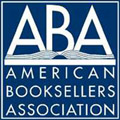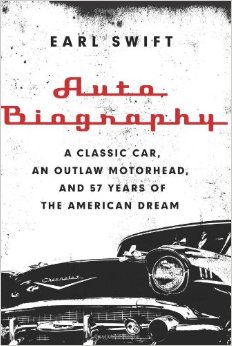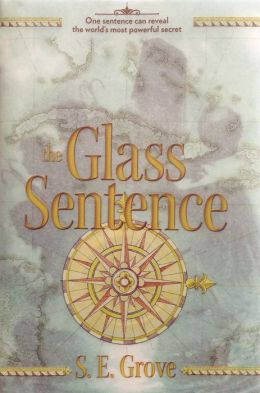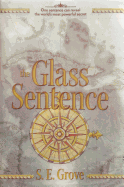In a Kindle Forum Post, Amazon Speaks Up About Hachette
 In its inimitable way, yesterday Amazon finally commented publicly on its dispute with Hachette Group. A post from "the Amazon Books team" on its Kindle forum acknowledged that the company is "buying less (print) inventory and 'safety stock' on titles" from Hachette and not offering orders in advance on forthcoming titles. Amazon said customers will be able to order titles on or after pub date, at which point the e-tailer will place orders with Hachette if it has no stock on hand. "Once the inventory arrives, we ship it to the customer promptly." Although Amazon didn't mention it explicitly, it appears that shipping delays on published titles have been shortened significantly. The post continued: "If you do need one of the affected titles quickly, we regret the inconvenience and encourage you to purchase a new or used version from one of our third-party sellers or from one of our competitors."
In its inimitable way, yesterday Amazon finally commented publicly on its dispute with Hachette Group. A post from "the Amazon Books team" on its Kindle forum acknowledged that the company is "buying less (print) inventory and 'safety stock' on titles" from Hachette and not offering orders in advance on forthcoming titles. Amazon said customers will be able to order titles on or after pub date, at which point the e-tailer will place orders with Hachette if it has no stock on hand. "Once the inventory arrives, we ship it to the customer promptly." Although Amazon didn't mention it explicitly, it appears that shipping delays on published titles have been shortened significantly. The post continued: "If you do need one of the affected titles quickly, we regret the inconvenience and encourage you to purchase a new or used version from one of our third-party sellers or from one of our competitors."
The post said that "despite much work from both sides, we have been unable to reach mutually-acceptable agreement on terms. Hachette has operated in good faith and we admire the company and its executives." Amazon warned that "though we remain hopeful and are working hard to come to a resolution as soon as possible, we are not optimistic that this will be resolved soon."
Amazon called negotiations with suppliers for "equitable terms and making stocking and assortment decisions based on those terms... one of a bookseller's, or any retailer's, most important jobs. Suppliers get to decide the terms under which they are willing to sell to a retailer. It's reciprocally the right of a retailer to determine whether the terms on offer are acceptable and to stock items accordingly. A retailer can feature a supplier's items in its advertising and promotional circulars, 'stack it high' in the front of the store, keep small quantities on hand in the back aisle, or not carry the item at all, and bookstores and other retailers do these every day."
The post then goes on to give the usual rationale for whatever Amazon does: "When we negotiate with suppliers, we are doing so on behalf of customers. Negotiating for acceptable terms is an essential business practice that is critical to keeping service and value high for customers in the medium and long term."
The post made no mention of what terms Amazon wants, but did offer an unusual gesture for authors: "We've offered to Hachette to fund 50% of an author pool--to be allocated by Hachette--to mitigate the impact of this dispute on author royalties, if Hachette funds the other 50%." It asserted that this was done in 2010 when Amazon deleted buy buttons on Macmillan titles.
The post ended by saying that the dispute is attracting attention "presumably in part because the negotiation is with a book publisher instead of a supplier of a different type of product" and said some of the coverage "has expressed a relatively narrow point of view." It ended with a link to a "post that offers a wider perspective."
--- The link at the end of Amazon's post goes to "Who's Afraid of Amazon.com?," which appears on the blog of Marty Shepard, co-founder of the Permanent Press, and is a response to the New York Times's May 24 article "As Publishers Fight Amazon, Books Vanish." Calling the story "a one sided exposé that only exposes poor journalism," Shepard criticized the Times for speaking with just a handful of publishers and authors, all of them critical of Amazon. "In their alarmist zeal reporters David Streitfeld and Melissa Eddy conjure the dreadful threat that Amazon has inflicted upon the 'literary world,' causing a kerfuffle of rage and fear as exemplified by a dispute between the electronic superstore and one of the most robust publishers in the Western World."
The link at the end of Amazon's post goes to "Who's Afraid of Amazon.com?," which appears on the blog of Marty Shepard, co-founder of the Permanent Press, and is a response to the New York Times's May 24 article "As Publishers Fight Amazon, Books Vanish." Calling the story "a one sided exposé that only exposes poor journalism," Shepard criticized the Times for speaking with just a handful of publishers and authors, all of them critical of Amazon. "In their alarmist zeal reporters David Streitfeld and Melissa Eddy conjure the dreadful threat that Amazon has inflicted upon the 'literary world,' causing a kerfuffle of rage and fear as exemplified by a dispute between the electronic superstore and one of the most robust publishers in the Western World."
Shepard also criticized large publishers, chain bookstores and wholesalers for their policies toward small presses, which he contrasted to Amazon, "the very best thing any small independent press could ask for." He gave four reasons for liking Amazon: 1) Amazon's returns are at most 1%-2% compared to 20%-80% for all other accounts; 2) Amazon posts reviews of Permanent Press books and lists other titles that might be of interest; 3) earnings from Kindle e-book sales are "excellent"; and 4) Amazon usually pays within 30 days via wire transfer, much faster than any other account.
The key problem leading to the Hachette dispute, according to Shepard, is that Hachette and other publishers "want more of the electronic pie, and if they can't get it howl and rage about it."
In conclusion, he wrote: "I always have a lingering suspicion that when one of the large publishing cartels complains they are being treated unfairly by Amazon, it's probably good for most all of the smaller, independent presses. When the Times allows a poorly researched, inaccurate anti-Amazon screed to appear, it makes me want to stand up for Jeff Bezos and Amazon, and present a very different point of view which I hope will balance out what I consider blatant propaganda. And I would encourage other publishers who feel similarly to e-mail me and speak out as well."
--- A quick response to Shepard came from Robert Rosenwald, publisher and president of Poisoned Pen Press, who wrote in part, "Do I think that Amazon has done much to improve book selling and distribution? Certainly. Do I think that Amazon has dramatically improved efficiency in our industry? Beyond any doubt. But your diatribe only speaks to how much better Permanent Press has done in certain areas of sales due to these increased efficiencies--not to the real and present threat of Amazon.com's actions against the reading public. How can you honestly not feel endangered by a company that is responsible for approximately a third of all book sales in the U.S. and heading towards half? Can you honestly ignore censorship under any guise?...
A quick response to Shepard came from Robert Rosenwald, publisher and president of Poisoned Pen Press, who wrote in part, "Do I think that Amazon has done much to improve book selling and distribution? Certainly. Do I think that Amazon has dramatically improved efficiency in our industry? Beyond any doubt. But your diatribe only speaks to how much better Permanent Press has done in certain areas of sales due to these increased efficiencies--not to the real and present threat of Amazon.com's actions against the reading public. How can you honestly not feel endangered by a company that is responsible for approximately a third of all book sales in the U.S. and heading towards half? Can you honestly ignore censorship under any guise?...
"Do you not see that once Hachette is subdued then the other big four are picked off next, one-at-a-time? And after that Sourcebooks, Poisoned Pen Press, Permanent Press, and every other independent publisher. Screw Hachette. I am not a fan of Hachette or of big publishing in any way. James Patterson is not an author Poisoned Pen Press would publish even if given the rights gratis, but I firmly believe that his books should be available for purchase everywhere books can be bought. And to hold his readers hostage as a byproduct of a disagreement between billionaire corporations is despicable....
"Ultimately I believe the only answer will be, like AT&T, to break up Amazon.com. I would argue that democracy is founded upon capitalism, and that capitalism cannot survive monopoly. In my opinion Amazon.com has become a de facto monopoly--at least with respect to bookselling--even if it is not in actuality. But if most small publishers are, as you postulate, unafraid of Amazon.com, then I fear I've lost my senses. And I fear for my business." He added that most small publishers don't want to speak publicly about Amazon because they fear retribution from the company.






SHELFAWARENESS.0213.S4.DIFFICULTTOPICSWEBINAR.gif)




 For the fifth year in a row,
For the fifth year in a row, 
 Last Saturday Dan Bailey, new owner of the
Last Saturday Dan Bailey, new owner of the SHELFAWARENESS.0213.T3.DIFFICULTTOPICSWEBINAR.gif)
 More than 600 people showed up at
More than 600 people showed up at  Between September 2014 and June 2015, 77 organizations across the U.S. will once again bring their communities together to read a great work of literature as part of the National Endowment for the Arts'
Between September 2014 and June 2015, 77 organizations across the U.S. will once again bring their communities together to read a great work of literature as part of the National Endowment for the Arts'  The Girl Who Never Was
The Girl Who Never Was New York City is famous (and infamous) for its pricey lifestyle. This is the home, after all, to a $250 truffle burger at Beer & Buns Burger Bar, $4,600 alligator Manolo Blahniks at Barney's, and the $45,000 Ty Warner Penthouse at Four Seasons New York (hey--at least it comes with a personal butler). But, travel doesn't have to be expensive--whether you're planning a dream trip to Europe or just your BEA weekend. Inspired by Rough Guides' bestselling "On A Budget" travel guidebook series, today we're tracking down the best ways to do NYC on the cheap.
New York City is famous (and infamous) for its pricey lifestyle. This is the home, after all, to a $250 truffle burger at Beer & Buns Burger Bar, $4,600 alligator Manolo Blahniks at Barney's, and the $45,000 Ty Warner Penthouse at Four Seasons New York (hey--at least it comes with a personal butler). But, travel doesn't have to be expensive--whether you're planning a dream trip to Europe or just your BEA weekend. Inspired by Rough Guides' bestselling "On A Budget" travel guidebook series, today we're tracking down the best ways to do NYC on the cheap. New York Street Food
New York Street Food You can thank BEA for picking the best time of year to host the show in New York. Spring not only brings forth blossoms and breezy temps, but also lots (and lots!) of free outdoor activities across the city parks. You know how working a BEA booth can feel like a juggling act? Work off the stress by doing the real thing.
You can thank BEA for picking the best time of year to host the show in New York. Spring not only brings forth blossoms and breezy temps, but also lots (and lots!) of free outdoor activities across the city parks. You know how working a BEA booth can feel like a juggling act? Work off the stress by doing the real thing.  Earl Swift wrote for newspapers in St. Louis, Mo., Anchorage, Alaska, and--for 22 years--Norfolk, Va. He was nominated five times for a Pulitzer Prize for his long-form stories at The Virginian-Pilot. He is the author of five books of narrative nonfiction, ranging from a forensic expedition into the Laotian jungle to the origins of the U.S. highway system. He spent nine years following the story that became Auto Biography: A Classic Car, an Outlaw Motorhead, and 57 Years of the American Dream (It Books, May 6, 2014), which he wrote while a residential fellow of the Virginia Foundation for the Humanities at the University of Virginia. Swift is the father of a 20-year-old daughter, Saylor, and is engaged to Amy Walton of Virginia Beach.
Earl Swift wrote for newspapers in St. Louis, Mo., Anchorage, Alaska, and--for 22 years--Norfolk, Va. He was nominated five times for a Pulitzer Prize for his long-form stories at The Virginian-Pilot. He is the author of five books of narrative nonfiction, ranging from a forensic expedition into the Laotian jungle to the origins of the U.S. highway system. He spent nine years following the story that became Auto Biography: A Classic Car, an Outlaw Motorhead, and 57 Years of the American Dream (It Books, May 6, 2014), which he wrote while a residential fellow of the Virginia Foundation for the Humanities at the University of Virginia. Swift is the father of a 20-year-old daughter, Saylor, and is engaged to Amy Walton of Virginia Beach. Book you're an evangelist for:
Book you're an evangelist for: In a gorgeous package--deckle-edge pages, roomy white space and elegant maps--debut author S.E. Grove introduces a plucky 13-year-old heroine named Sophia Tims in the first of a planned trilogy. The book will attract Harry Potter fans and others who enjoy plunging into a world with alternate universes.
In a gorgeous package--deckle-edge pages, roomy white space and elegant maps--debut author S.E. Grove introduces a plucky 13-year-old heroine named Sophia Tims in the first of a planned trilogy. The book will attract Harry Potter fans and others who enjoy plunging into a world with alternate universes. 